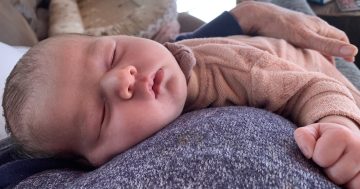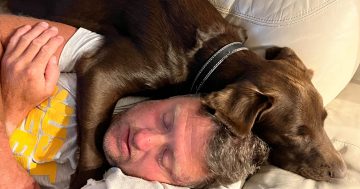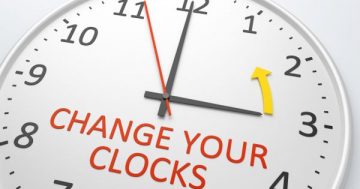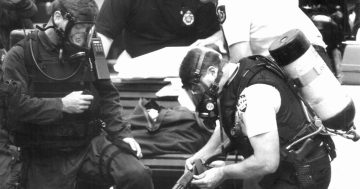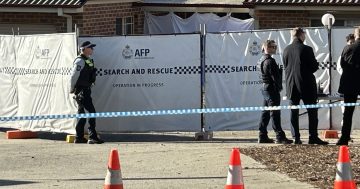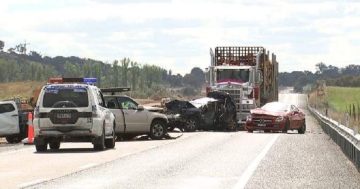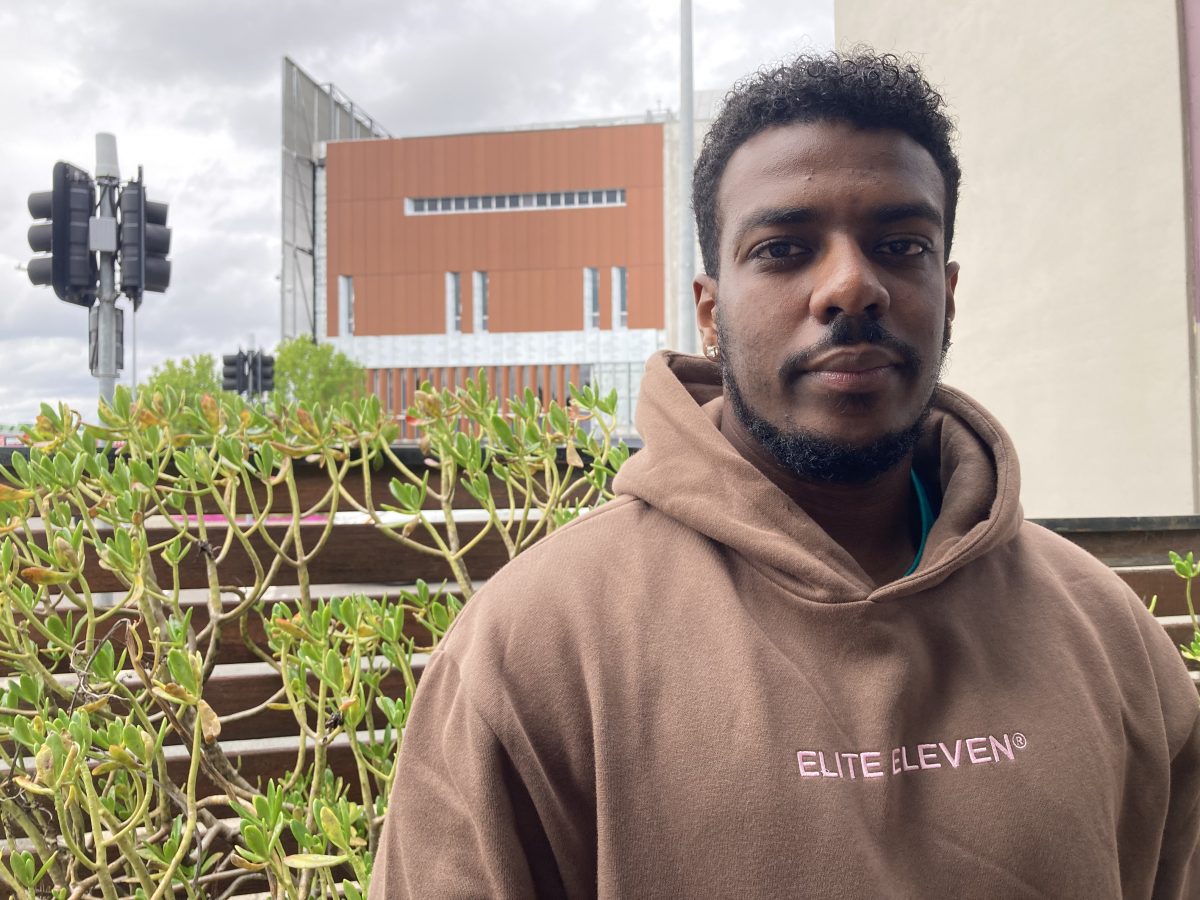
Fahad Ramamdhan is only 24 but suffers from sleep apnoea. Photo: Ezra Ryan.
When 24-year-old Canberran bodybuilder Fahad Ramamdhan was asked the question, “Do you wake up tired?” he thought there was an obvious answer: “Doesn’t everyone?”
Finding out that most people wake up feeling refreshed was a shock to Fahad, and one of the first signs that he had undiagnosed sleep apnoea.
Sleep apnoea refers to a range of conditions which cause a person to stop breathing while asleep, in severe cases for a few minutes at a time. The condition has serious effects on quality of sleep and health, and once diagnosed, is often lifelong.
There are several risk factors which increase the likelihood of having sleep apnoea, with obesity and age being by far the most prominent, but it’s entirely possible to have sleep apnoea even with otherwise perfect health, and at a young age.
Fahad, who works in IT and sales, was diagnosed earlier this year after his fiance noticed he was snoring and “waking up in shock” during the night.
“I had no idea what she was talking about,” Fahad said. “I thought she was crazy.”
Fahad had never heard of sleep apnoea but his fiance worked at a chemist and told him about the take-home sleep tests offered. She convinced him to give them a try.
“I’ve been feeling like that (tired) my whole life, so I thought that was the norm,” Fahad said. “When I actually started treatment, I saw the changes straight away.”
Fahad scored in the high twenties on the Apnoea-Hypopnoea Index (AHI), which measures how many times during an hour of sleep an apnoea/hypopnoea event takes place. Apnoeas are a complete lack of breathing, and hypopnoeas are shallow breathing.
Fahad’s test revealed that during his eight hours of sleep, he had only one hour of deep rest.
“I held my breath 138 times [while asleep], and each time I held it for 80 seconds,” Fahad said.
During an apnoea or hypopnoea, the amount of oxygen in your blood drops by around three to four per cent and your body reacts by waking you up. In severe cases, this level can drop even more drastically.
The risks of these dips in blood oxygen levels are far reaching, from hypoxemia leading to high blood pressure, to headaches and dizziness, increased strain on the heart, and in severe cases, even strokes.
Long periods of undiagnosed, untreated sleep apnoea can have cascading effects on an individual’s health and wellbeing.
“I always needed to take naps during the day,” Fahad said. “Around 2 pm I’d be so tired.”
Fahad was recommended continuous positive airway pressure (CPAP) as a treatment for his condition. CPAP is the most common treatment for obstructive sleep apnoea.
It’s a condition which occurs when the muscles in the throat relax to the point they close, preventing regular breathing. CPAP blows constant air through a mask, ‘splinting’ the airway, and preventing it from closing up, allowing for normal breathing.
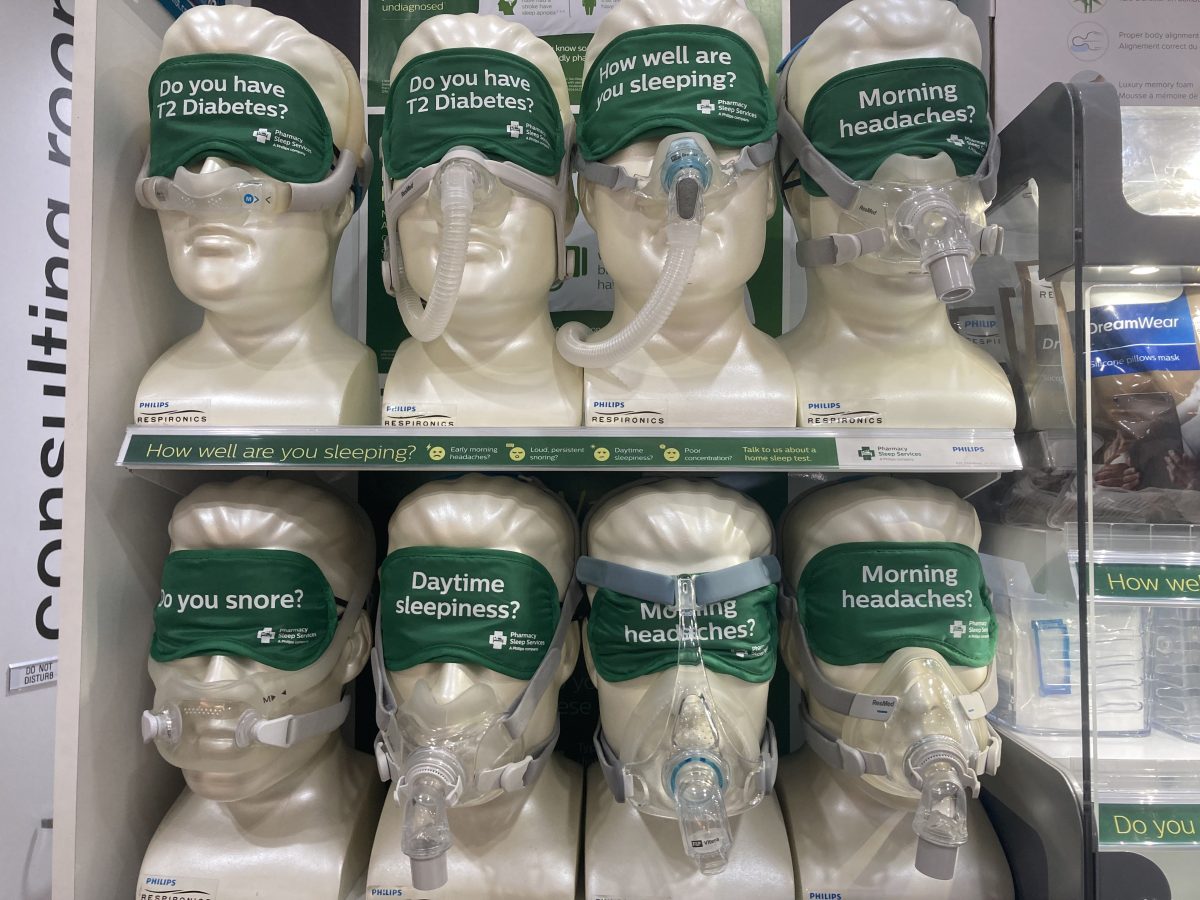
Sometimes the idea of a mask can deter sufferers from acting. Photo: Ezra Ryan.
“I think the idea of having to wear a mask is a bit drastic, and a bit weird, and once I saw I had to wear that mask I was like, ‘Not a chance’,” he said.
The mask can be an early deterrent for those who suspect they have sleep apnoea. While diagnosis of sleep apnoea has never been easier, treatment can still be daunting.
CPAP machines are expensive, can take a long time to get used to, and often many types of masks or machines have to be tried before the correct one is found.
Fahad tried eight masks before finding one that worked, but he says after that, he started to see immediate positive effects from the treatment, especially in the gym.
“As soon as I started, I could definitely see my gains and just energy, and I was a lot more rested and could gym more,” he said.
Fahad highly recommended the take-home test kit available at chemists, which he said was affordable, easy to use, and came with support from the sleep physician.
“It’s nothing scary, they really look after you,” he said.
While discovering he had sleep apnoea at such a young age, and in such good health otherwise, was a shock, Fahad was glad he caught it so early, avoiding the longer reaching health issues that could arise.
He said treatment had helped him at work, the gym, and in his relationship.
“I would love to raise awareness for younger people, because it’s huge,” he said.
Ezra Ryan is a journalism student at the University of Canberra.












